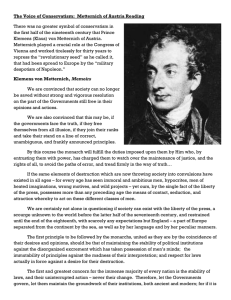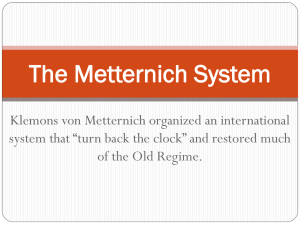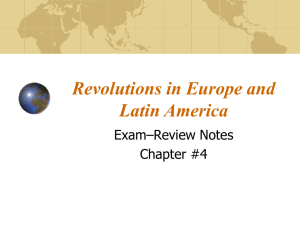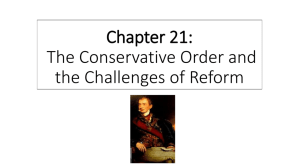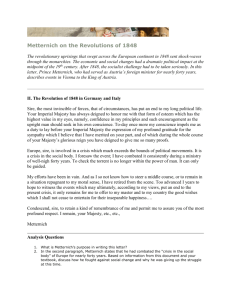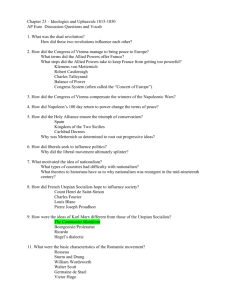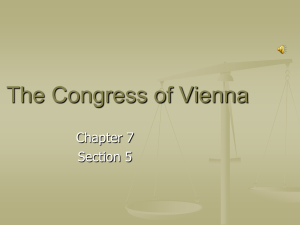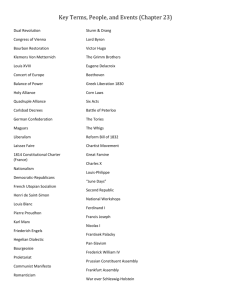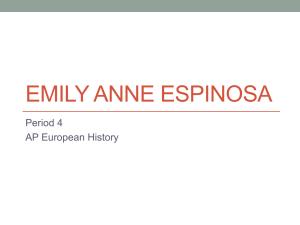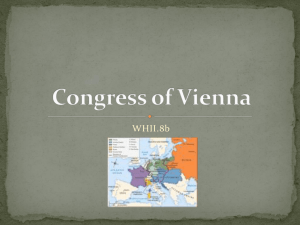Congress of Vienna
advertisement
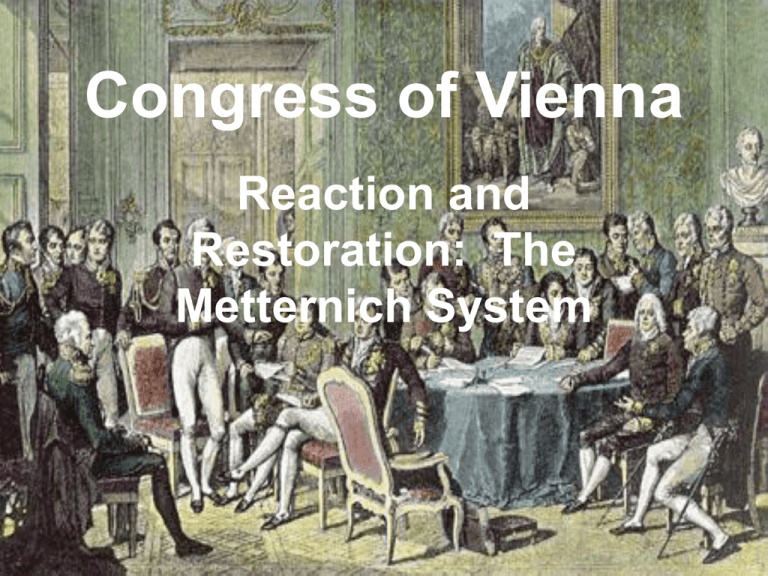
Congress of Vienna Reaction and Restoration: The Metternich System Key Questions and Quote • Analyze how conservative social and political views shaped the settlement at Vienna and evaluate the consequences of the settlement for the period, 1815-48. • Quote: “Conservatism takes men as they are…finite beings, prone to error, capable of becoming something decent with discipline, but more than likely something less than men without it. While concerning itself with improvement, it never forgets that a very considerable part of human effort and energy must always be expended in preventing things from getting worse.” • R.J. White The Situation • Desire for security and order after French Revolution and Napoleonic Wars • Enhanced position of reactionary and conservative forces • Need to integrate France back into “family of nations” after Bourbons restored Participants • Metternich of Austria—from aristocracy, desire to maintain old order, stop revolution • Alexander I of Russia—began as reformer, now wants Poland and Holy Alliance • Castlereagh of G. Britain—cultured introvert wants B.O.P, non-intervention, and trade • Talleyrand of France—chameleon, wants good terms and France’s position enhanced • Hardenburg or Prussia—control Saxony, followed lead of Metternich Treaty of Paris (1814) • • • • • Restore Louis XVIII No indemnities, keep stolen art Borders of 1792 Hundred Days and Waterloo Polish-Saxon Question Final Treaty • • • • Army of occupation and indemnity Return stolen art Borders of 1790 Buffer states—Prussia, PiedmontSardinia, K. of Netherlands • Quadr(Quint)uple and Holy Alliance • Concert of Europe Principles • Legitimacy—return traditional dynasties • Compensation—balance territorial losses w/ gains • Equilibrium (BOP)—maintain the status quo, avoid revolution, suppress nationalism & Liberalism Concert of Europe • • • • • • • Differing visions of Metternich and G.B. 1818—Aix-La-Chapelle—reintegrate France 1820—Troppau—situation in Naples/Spain 1821--Laibach—Austrian troops into Italy 1822—Verona—French troops into Spain Latin American revolts and Monroe Doctrine Greek (1830) and Belgian (1831) independence Prince Klemens Wenzel Nepomuk Lothar von Metternich (1773-1859) • “Metternich appears to us a man of goodwill and good sense: an admirable judge of men and of the political problems of his age. The astonishing length of his reign is due to the combination of circumstances that placed him, the conservative and cautious Minister par excellence, at the head of an empire that needed peace and stability to survive.” • “His is a vanity which assumes grandiose and fascinating dimensions. Never before, has verbal egotism been carried to such lengths. In speaking of himself, Metternich is inexhaustible. He misses no opportunity: conversations, documents, love letters.”
